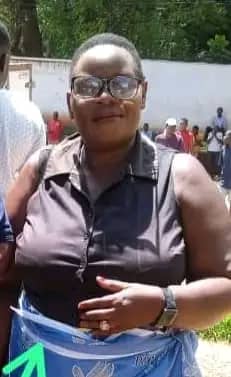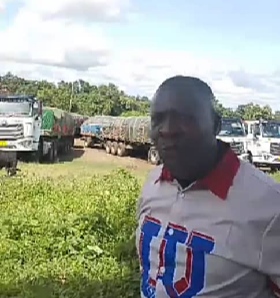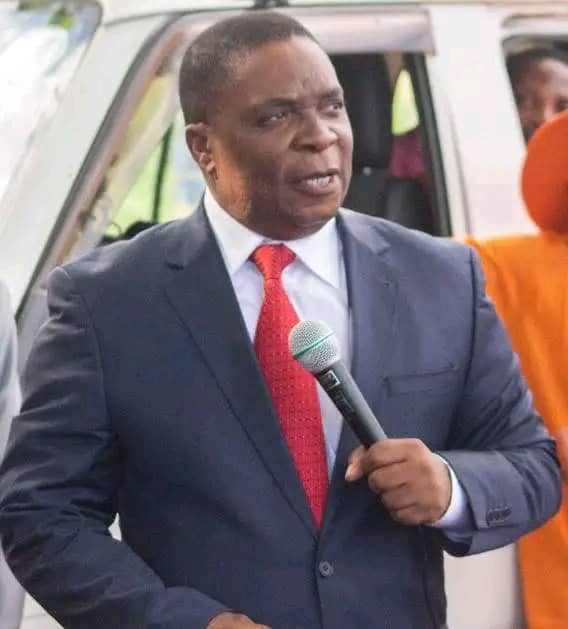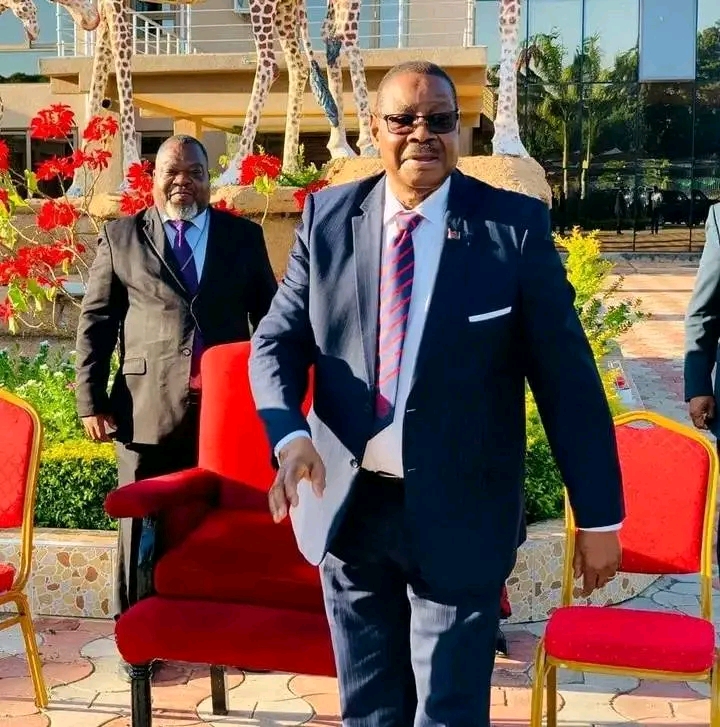By Burnett Munthali
Welcome Remarks:
Thank you, Mr. Rick Dzida, for agreeing to share your insights on this troubling issue. The incident involving Hon. Brenda Saidi is both heartbreaking and enraging, sparking questions about the role, accountability, and purpose of the Malawi Police Service in our democratic society. Your thoughts will help shed light on this tragedy and contribute to a national conversation on reform and justice.
Questions
1) What is your immediate response to the use of live bullets against Hon. Brenda Saidi and other DPP supporters in Area 3?
RD: The use of live bullets against Hon. Brenda Saidi and other DPP supporters in Area 3, Malawi, is absolutely unacceptable and alarming.
It’s a clear violation of human rights and fundamental freedoms, particularly the right to life, liberty, and security of person.
This kind of violence has no place in a democratic society, and it’s essential that the authorities take immediate action to investigate this incident, hold perpetrators accountable, and ensure that justice is served.
The government must also take concrete steps to prevent such incidents from happening again in the future.
It’s also disturbing to note that this incident is not an isolated one. There have been reports of political violence and intimidation in Malawi, which is a threat to the country’s democracy and stability.
The international community, human rights organizations, and civil society groups must condemn this violence and press the Malawian government to respect human rights and the rule of law.
2) Do you think there is sufficient accountability within the Malawi Police Service when it comes to handling incidents of brutality?
RD: The Malawi Police Service (MPS) has been criticized for lacking transparency in its handling of incidents of brutality, making it difficult to hold perpetrators accountable.
The MPS often conducts internal investigations, which can lead to bias and cover-ups, undermining accountability.
The civilian oversight mechanisms, such as the Police Oversight Committee, may not have sufficient powers or resources to effectively investigate and hold the police accountable.
There is a perceived culture of impunity within the MPS, where officers may feel that they can act with impunity without facing consequences.
Recommendations for Improvement
Establish an independent body to investigate incidents of police brutality, ensuring impartiality and transparency.
Empower civilian oversight mechanisms with sufficient powers, resources, and expertise to effectively investigate and hold the police accountable.
Implement comprehensive police reform, focusing on training, accountability, and community policing to address the root causes of brutality.
Foster community engagement and trust through regular dialogue, outreach programs, and collaborative problem-solving initiatives.
Key Reforms
Revise the Police Act to include stronger accountability mechanisms, such as independent investigations and disciplinary procedures.
Create an independent Police Complaints Commission to investigate complaints against the police and ensure accountability.
Roll out community policing initiatives to build trust and foster collaboration between the police and the community.
3) What circumstances, if any, do you believe justify the use of live ammunition in crowd control? Was its use in this case defensible?
RD: The use of live ammunition in crowd control is highly controversial and should be considered a last resort. International human rights standards, such as the United Nations Basic Principles on the Use of Force and Firearms, emphasize that live ammunition should only be used in exceptional circumstances, such as:
When there is an imminent threat to the life or serious injury of law enforcement personnel or others.
In situations where there is widespread violence, destruction of property, or a significant threat to public order.
When law enforcement personnel are acting in self-defense or defense of others.
Based on the information provided, the use of live ammunition in this case does not appear to be defensible. Reports indicate that the incident involved a peaceful demonstration, and the use of live ammunition resulted in injuries.
The use of live ammunition in this context raises serious concerns about the proportionality and necessity of the force used. It is essential to investigate this incident thoroughly and hold those responsible accountable.
Alternative Measures
Law enforcement agencies should prioritize de-escalation techniques and less-lethal measures to manage crowds and maintain public order. These may include:
Engaging with protest leaders and participants to address concerns and find peaceful resolutions.
Using non-violent crowd control measures, such as barriers, to manage crowd movement and prevent violence.
Employing less-lethal force options, such as tear gas, pepper spray, or rubber bullets, as a last resort and in accordance with international standards.
4) Do you think the Malawi Police Service operates under a culture of impunity? What factors have contributed to this situation?
RD : The Malawi Police Service (MPS) has faced allegations of operating under a culture of impunity, where officers feel they can act with immunity from prosecution or disciplinary action.
Contributing factors
Several factors have contributed to this situation:
Inadequate civilian oversight and internal accountability mechanisms have allowed impunity to persist.
Insufficient training on human rights, use of force, and accountability may contribute to a culture of impunity.
Corruption within the MPS can perpetuate impunity, as officers may be protected from accountability due to corrupt relationships.
Victims and witnesses may fear retaliation from the police, making them hesitant to report abuses or cooperate with investigations.
Inadequate resources, including funding, personnel, and equipment, can hinder the MPS’s ability to investigate and prosecute abuses.
Political interference in police operations can undermine accountability and create an environment of impunity.
Consequences
The culture of impunity within the MPS has severe consequences, including:
Public trust in the police is undermined, making it challenging to maintain law and order.
Impunity can lead to increased human rights abuses, as officers feel they can act with immunity.
Impunity can obstruct justice, as officers may be protected from accountability for their actions.
Recommendations
To address the culture of impunity within the MPS:
Establish effective civilian oversight bodies to investigate abuses and ensure accountability.
Ensure officers receive adequate training on human rights, use of force, and accountability, and provide necessary resources to support investigations and prosecutions.
Foster a culture of transparency and accountability within the MPS, encouraging officers to report abuses and cooperate with investigations.
5) Many claim the police act as a tool for the ruling elite. Do you agree with this sentiment? Why or why not?
RD: The notion that the Malawi police act as a tool for the ruling elite is a contentious issue. Many Malawians perceive the police as being biased towards the ruling party, often targeting opposition members and activists .
This perception is fuelled by incidents like the use of live bullets against Hon. Brenda Saidi, a prominent opposition figure.
The police force’s reputation has been marred by corruption, with the sector being perceived as the most corrupt in Malawi, according to Transparency International’s 2011 survey.
This corruption can lead to selective enforcement of the law, where allies of the ruling elite receive preferential treatment.
However, it’s essential to acknowledge that the Malawi police are not a monolithic entity, and there may be individual officers who strive to uphold the law impartially.
Ultimately, addressing the perception that the police serve the ruling elite requires comprehensive reforms, including anti-corruption measures, training on human rights and impartial policing, and strengthening oversight mechanisms to ensure accountability.
6) How do incidents like this affect Malawi’s democratic principles, particularly the right to peaceful assembly and freedom of expression?
RD: Incidents like the use of live ammunition against Hon. Brenda Saidi and other DPP supporters in Area 3, Malawi, can significantly undermine the country’s democratic principles, particularly the right to peaceful assembly and freedom of expression.
The use of excessive force by law enforcement can create a culture of fear, intimidating citizens from exercising their constitutional rights to assemble peacefully and express their opinions ¹. This can lead to a decline in civic participation, as people may feel that their voices are not being heard or that they will face reprisals for speaking out.
Furthermore, such incidents can erode trust in institutions, including the police and the government, which are essential for upholding democratic principles. When citizens lose faith in these institutions, it can lead to widespread disillusionment and undermine the legitimacy of the democratic process.
In Malawi’s case, the upcoming 2025 elections make it crucial to address these concerns and ensure that citizens can exercise their rights without fear of intimidation or violence. The government and law enforcement agencies must take concrete steps to prevent such incidents, investigate those that do occur, and hold perpetrators accountable.
Key Concerns:
Incidents like this can undermine public trust in the police and government.
Excessive force can intimidate citizens from exercising their rights to peaceful assembly and free expression.
Repeated incidents can erode the legitimacy of the democratic process and the government’s authority.
7) Based on recent events, would you say the Malawi Police Service prioritizes human rights in its operations? Why or why not?
RD: Based on recent events, it appears that the Malawi Police Service (MPS) does not consistently prioritize human rights in its operations.
Reasons for Concern
The MPS has been accused of using excessive force, including live ammunition, to disperse crowds and quell protests, resulting in injuries and fatalities.
There is a perceived lack of accountability within the MPS, with few officers held responsible for human rights abuses.
The MPS has been criticized for selectively enforcing the law, targeting opposition supporters and activists while seemingly ignoring similar infractions by ruling party supporters.
In some cases, the MPS has disregarded court orders, such as those related to the release of detained individuals or the prohibition of certain gatherings.
Consequences
The MPS’s actions have consequences for the human rights of Malawian citizens, including:
The MPS’s actions can erode trust between law enforcement and the community, making it more challenging to maintain public order and safety.
The use of excessive force and selective enforcement can increase tensions between different groups, potentially leading to further violence and instability.
The disregard for human rights and the rule of law can undermine Malawi’s democratic progress and reputation.
Recommendations
To address these concerns, the MPS should:
Provide comprehensive training on human rights, including the use of force, detention, and crowd control.
Develop and strengthen internal accountability mechanisms to investigate and address human rights abuses.
Engage with local communities to build trust and promote cooperation.
Ensure that the MPS respects and enforces court orders and upholds the rule of law.
8) What immediate actions would you expect from the government to ensure justice for Hon. Brenda Saidi and others affected by police brutality?
RD: To ensure justice for Hon. Brenda Saidi and others affected by police brutality, the government should take the following immediate actions:
Set up an impartial inquiry to investigate the incidents of police brutality, led by a credible and independent body, to ensure transparency and accountability.
Ensure that officers responsible for the brutality are held accountable, through disciplinary action, prosecution, or both, to send a strong message that such behaviour won’t be tolerated.
Offer immediate medical attention and psychological counselling to victims of police brutality, including Hon. Brenda Saidi, to help them recover from their ordeal.
Initiate policy reforms to address the root causes of police brutality, such as inadequate training, lack of accountability, and corruption, to prevent similar incidents in the future.
Foster dialogue and engagement with the community, particularly affected families and human rights organizations, to rebuild trust and ensure that their concerns are addressed.
These actions are crucial in demonstrating the government’s commitment to upholding human rights, ensuring accountability, and promoting justice for all.
9) Do you believe the establishment of independent bodies to investigate police actions could improve accountability and reduce incidents of brutality?
RD: Establishing independent bodies to investigate police actions can significantly improve accountability and reduce incidents of brutality in Malawi.
Benefits of independent oversight
Independent bodies can conduct impartial investigations, free from police influence or bias.
Independent oversight can promote transparency, ensuring that investigations are conducted openly and findings are made public.
Independent bodies can hold police officers accountable for their actions, sending a strong message that brutality will not be tolerated.
Independent oversight can help rebuild trust between law enforcement and the community, fostering cooperation and reducing tensions.
Independent bodies can identify systemic issues and recommend reforms, leading to improved police practices and reduced incidents of brutality.
Models for independent oversight
Establish a commission with the power to investigate complaints, monitor police conduct, and recommend disciplinary action.
Complaints Commission_: Create a commission to investigate complaints against the police, with the power to recommend disciplinary action and reforms.
Establish a board composed of civilians to review police actions, investigate complaints, and recommend reforms.
Challenges and considerations
Guarantee the independence of the oversight body, protecting it from political influence or interference.
Provide sufficient resources, including funding, personnel, and expertise, to ensure the oversight body can effectively investigate and address complaints.
Foster community engagement and participation in the oversight process, ensuring that the concerns and needs of the community are addressed.
By establishing independent bodies to investigate police actions, Malawi can take a crucial step towards improving accountability, reducing incidents of brutality, and promoting a more just and equitable society.
10) What role should civil society organizations and human rights defenders play in addressing police misconduct and advocating for justice?
RD: Civil society organizations (CSOs) and human rights defenders play a crucial role in addressing police misconduct and advocating for justice in Malawi.
Key Roles
CSOs and human rights defenders should monitor and document incidents of police misconduct, providing evidence for advocacy and accountability efforts.
They should advocate for policy reforms, legislative changes, and improved police practices, engaging with government officials, parliamentarians, and other stakeholders.
CSOs and human rights defenders should provide support, including legal assistance, counseling, and advocacy, to victims of police misconduct and their families.
They should raise awareness about police misconduct, its impact on individuals and communities, and the importance of accountability, through public campaigns, media engagement, and community outreach.
CSOs and human rights defenders should collaborate with other stakeholders, including community leaders, faith-based organizations, and the media, to build a strong, collective voice for justice and accountability.
Challenges and risks
CSOs and human rights defenders may face intimidation, harassment, or even violence from state actors or other powerful interests.
The government may impose restrictive laws or policies, limiting the ability of CSOs and human rights defenders to operate effectively.
CSOs and human rights defenders often face limited resources, including funding, personnel, and expertise, which can hinder their ability to effectively address police misconduct.
Opportunities for Impact
CSOs and human rights defenders can build a strong, collective voice for justice and accountability, amplifying the impact of their advocacy efforts.
They can engage with international human rights mechanisms, such as the United Nations Human Rights Council, to raise awareness about police misconduct in Malawi and advocate for international support.
CSOs and human rights defenders can support policy reforms and legislative changes aimed at addressing police misconduct, such as the establishment of an independent police complaints commission.
11) How has this incident impacted public confidence in the Malawi Police Service? What steps should be taken to rebuild trust?
RD: The recent incident involving the Malawi Police Service’s handling of a protest has significantly eroded public confidence in the institution. Many Malawians are questioning the police’s impartiality and ability to protect citizens, particularly after officers stood by as masked men disrupted protests in Lilongwe .
The lack of action by the police has been perceived as a betrayal of their constitutional duty to protect citizens. This has led to widespread condemnation from civil society organizations, religious groups, and human rights advocates. The Malawi Human Rights Commission has called for an immediate and thorough investigation into the events.
To rebuild trust, the Malawi Police Service must take concrete steps to address the concerns of the public. Here are some key measures:
Establish an independent body to investigate the incident and ensure that those responsible are held accountable.
Implement measures to ensure impartial policing, particularly during politically sensitive events.
Foster community engagement and participation in policing through regular dialogue and outreach programs.
Ensure that officers who engage in misconduct are held accountable through disciplinary action and prosecution.
Provide training on human rights, use of force, and community policing to ensure that officers are equipped to handle protests and other situations professionally.
Ultimately, rebuilding trust will require a sustained effort by the Malawi Police Service to demonstrate its commitment to protecting the rights and safety of all citizens.
12) What do you expect from President Lazarus Chakwera and his administration in addressing police brutality and ensuring accountability?
RD: President Lazarus Chakwera and his administration should take concrete steps to address police brutality and ensure accountability.
Firstly, they should investigate and prosecute incidents of police brutality, ensuring that those responsible are held accountable.
This includes conducting thorough investigations, collecting evidence, and prosecuting officers who engage in misconduct.
Additionally, the administration should implement police reforms, focusing on training, community engagement, and oversight mechanisms.
This could include establishing an independent police complaints commission to investigate allegations of misconduct.
The administration should provide regular updates on investigations and prosecutions, ensuring that the public is informed and engaged in the process.
Furthermore, President Chakwera should engage with civil society and the community fostering dialogue and collaboration to address concerns around police brutality.
This includes working with human rights organizations, community leaders, and other stakeholders to develop solutions and promote trust.
Ultimately, the administration’s actions will speak louder than words. Malawians expect concrete steps to address police brutality and ensure accountability, and it’s essential that President Chakwera delivers on these expectations.
13) How do you think such incidents shape Malawi’s political and social landscape in the long term?
RD: Incidents of police brutality, including the use of live bullets against protesters, can have far-reaching consequences for Malawi’s political and social landscape. Here are some potential long-term effects:
Political landscape
Repeated incidents of police brutality can erode trust in institutions, including the police, government, and judiciary.
Police brutality can exacerbate existing political divisions, leading to increased polarization and social unrest.
The use of excessive force can drive some individuals to radicalize, potentially leading to increased violence and instability.
Social landscape
Police brutality can disproportionately affect marginalized communities, exacerbating existing social and economic inequalities.
The use of live bullets and excessive force can create a culture of fear, intimidating citizens from exercising their rights to freedom of assembly and expression.
Repeated incidents of police brutality can lead to increased social unrest, protests, and demonstrations, potentially destabilizing the country.
Economic consequences
Repeated incidents of police brutality can deter investors and tourists, negatively impacting Malawi’s economy.
The international community may reevaluate their funding and support for Malawi if the government fails to address police brutality and ensure accountability.
Opportunities for Reform
Incidents of police brutality can catalyze much-needed reforms, including training, community engagement, and oversight mechanisms.
Repeated incidents of police brutality can galvanize civic engagement, encouraging citizens to demand greater accountability and transparency from their government.
The aftermath of police brutality incidents can provide an opportunity to strengthen institutions, including the judiciary, parliament, and civil society organizations.
14) What key reforms do you believe are necessary to transform the Malawi Police Service into an institution that serves and protects all citizens?
RD: Transforming the Malawi Police Service into an institution that serves and protects all citizens requires comprehensive reforms. Here are some key reforms that can help achieve this goal:
Institutional reforms
Create an independent body to investigate complaints against the police, monitor their conduct, and recommend disciplinary action.
Amend the Police Act to ensure that it aligns with international human rights standards and provides clear guidelines for police conduct.
Enhance the internal affairs unit to investigate and address misconduct within the police service.
Training and capacity building
Provide comprehensive human rights training for all police officers, focusing on the use of force, detention, and community policing.
Train police officers in community policing techniques to foster positive relationships with the community.
Develop leadership capacity within the police service to promote a culture of accountability and professionalism.
Community engagement and participation
Create community policing forums to facilitate dialogue between the police and the community.
Foster transparency by providing regular updates on police activities, investigations, and disciplinary actions.
Encourage citizens to participate in policing through initiatives such as neighborhood watch programs.
Accountability mechanisms
Create an independent mechanism for citizens to report complaints against the police.
Develop and implement robust disciplinary procedures to hold police officers accountable for misconduct.
Ensure that police officers who commit crimes are prosecuted and held accountable.
Resource allocation and management
Allocate sufficient resources to support community policing initiatives.
Upgrade police infrastructure, including stations, equipment, and transportation.
Improve police welfare, including salaries, benefits, and working conditions.
By implementing these reforms, the Malawi Police Service can transform into an institution that truly serves and protects all citizens.
15) What message would you like to share with Malawians about standing against police brutality and safeguarding their rights?
RD: As a nation, you have the power to demand justice, equality, and protection of your human rights. Police brutality is a threat to these fundamental rights and undermines the trust between law enforcement and the community.
Safeguarding Your Rights
Educate yourself on the Constitution, laws, and international human rights standards that protect your freedoms.
Report incidents of police brutality and misconduct to the authorities, media, and human rights organizations.
Exercise your right to peaceful assembly and protest to demand justice and reforms.
Stand in solidarity with those affected by police brutality, offering emotional, financial, and legal support.
Push for investigations, prosecutions, and disciplinary actions against errant officers.
Unity and Solidarity
The fight against police brutality requires collective action. Unite with fellow citizens, civil society organizations, and community leaders to:
Raise awareness about police brutality and its impact on communities.
Advocate for policy changes, legislation, and institutional reforms to prevent police brutality.
Protect and empower human rights defenders, activists, and journalists who risk their lives to expose police brutality.
Remember that you are not alone in this struggle. Your collective efforts can bring about meaningful change, ensuring that the police serve and protect all citizens, regardless of their background, social status, or political affiliation.
Stay informed, stay vigilant, and stay united. Together, you can create a safer, more just Malawi for all.
Conclusion:
Thank you, Mr. Dzida, for taking the time to share your insights and perspectives on this urgent matter. Your views are invaluable in the fight for accountability, reform, and justice. The Malawi Police Service must be reminded that they serve the people, and acts of oppression and brutality will not be tolerated. Justice for Hon. Brenda Saidi is justice for Malawi.




